Metabolism

Serine/threonine kinase AMPK upregulates glucose uptake by promoting the expression and function of glucose transporters. AMPK is activated by increased AMP/ATP ratio, resulting from cellular and environmental stress, e.g. low glucose, heat shock, hypoxia and ischemia. AMPK activation positively modulates signaling transductions that refill ATP levels. Moreover, it also stimulates catabolic processes such as fatty acid oxidation and glycolysis through inhibition of ACC and activation of PFK2. AMPK negatively regulates various proteins which are important to ATP-consuming mechanisms, e.g. mTORC2, glycogen synthase, SREBP-1, and TSC2, causing the downregulation/inhibition of gluconeogenesis and glycogen, lipid and protein synthesis.
-
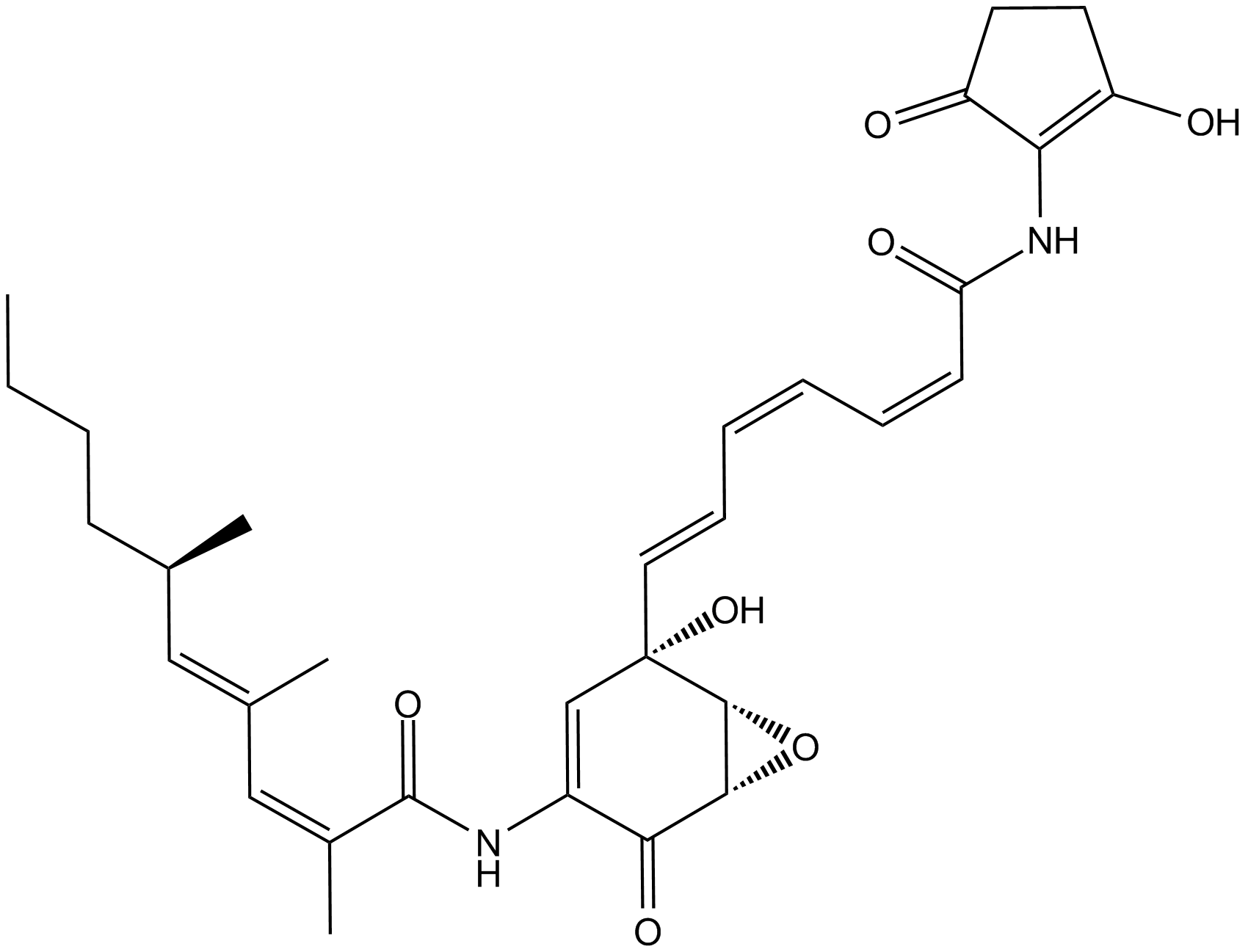 B6062 Manumycin ASummary: farnesyltransferase inhibitor
B6062 Manumycin ASummary: farnesyltransferase inhibitor -
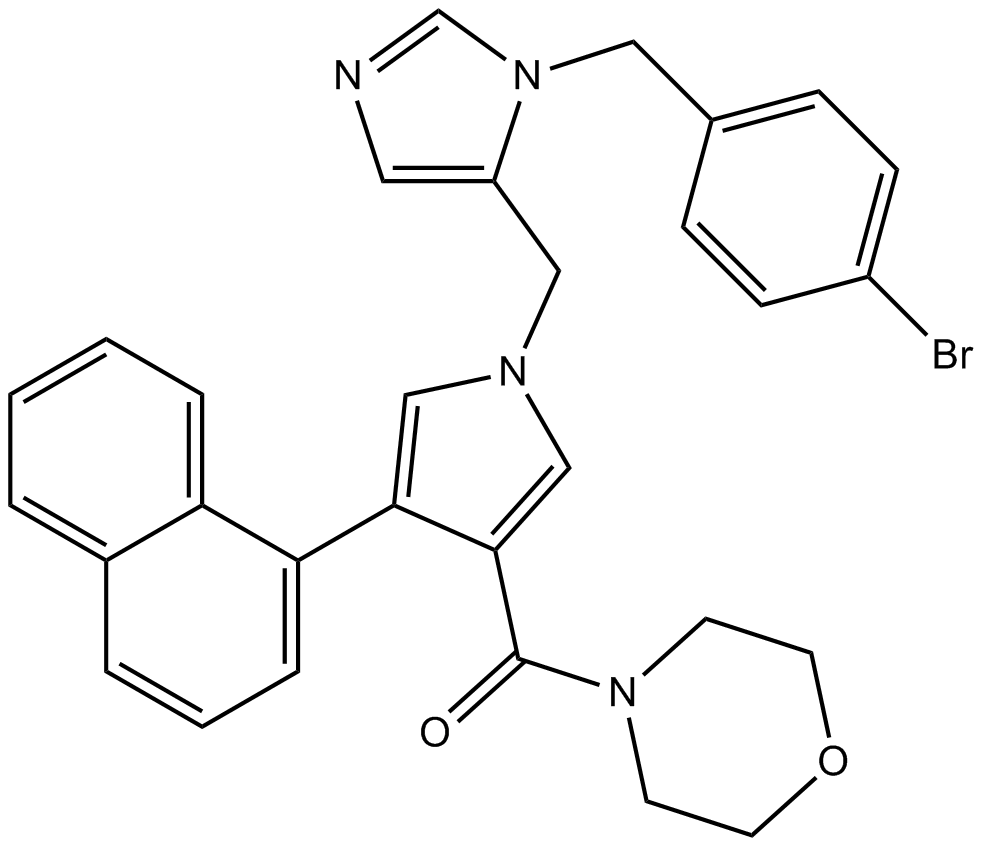 B3703 LB42708Target: FtaseSummary: Selective FTase inhibitor
B3703 LB42708Target: FtaseSummary: Selective FTase inhibitor -
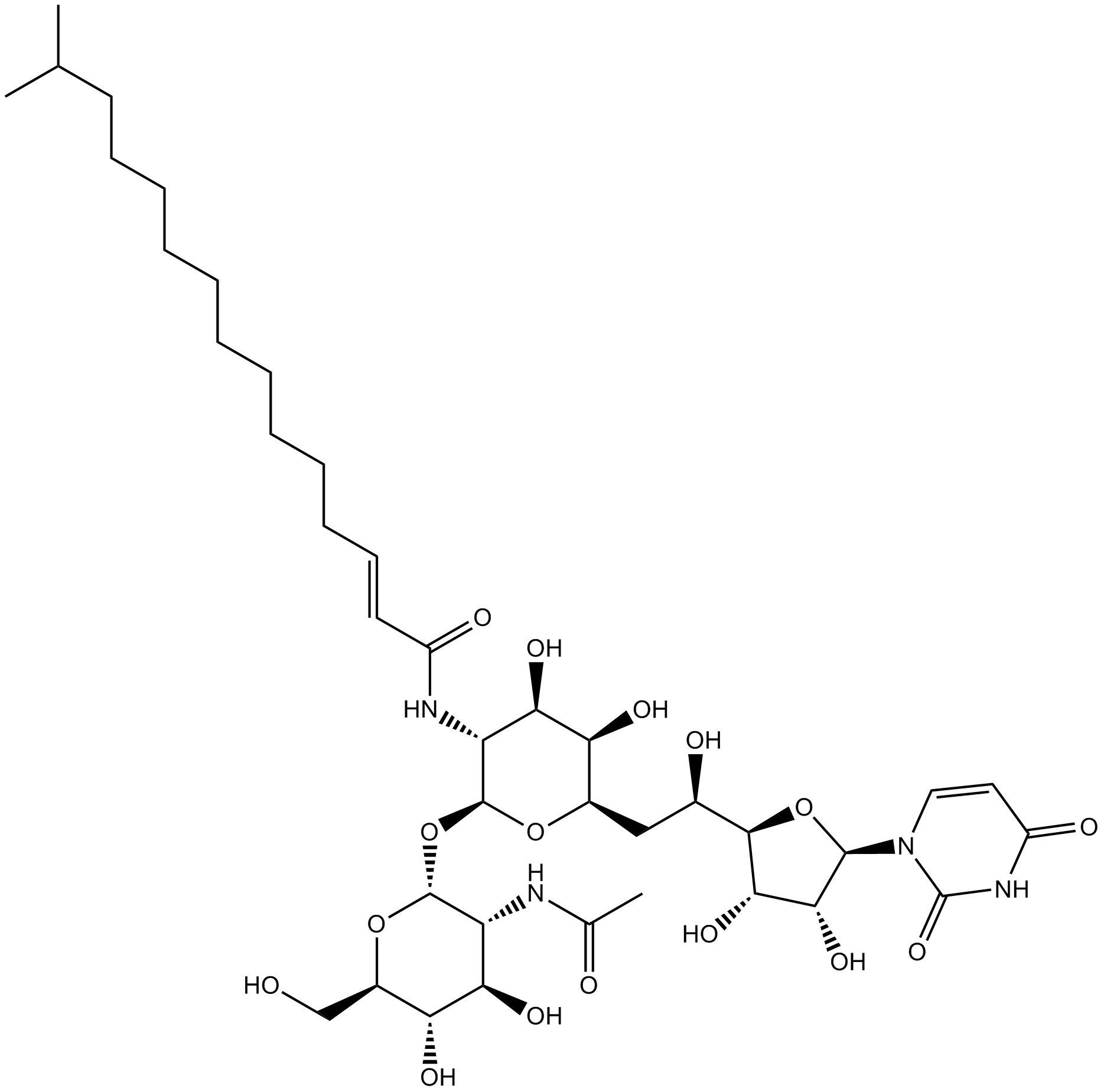 B7417 Tunicamycin1 CitationSummary: antibiotic,inhibits GlcNAc phosphotransferase (GPT)
B7417 Tunicamycin1 CitationSummary: antibiotic,inhibits GlcNAc phosphotransferase (GPT) -
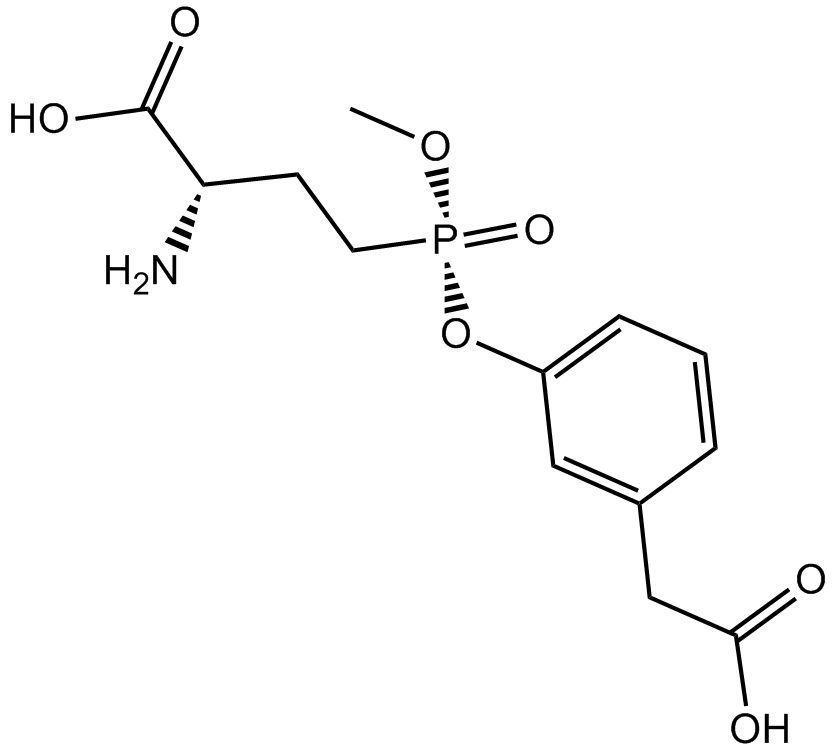 B5602 GGsTopSummary: γ-glutamyl transpeptidase (GGT) inhibitor, novel and irreversible
B5602 GGsTopSummary: γ-glutamyl transpeptidase (GGT) inhibitor, novel and irreversible -
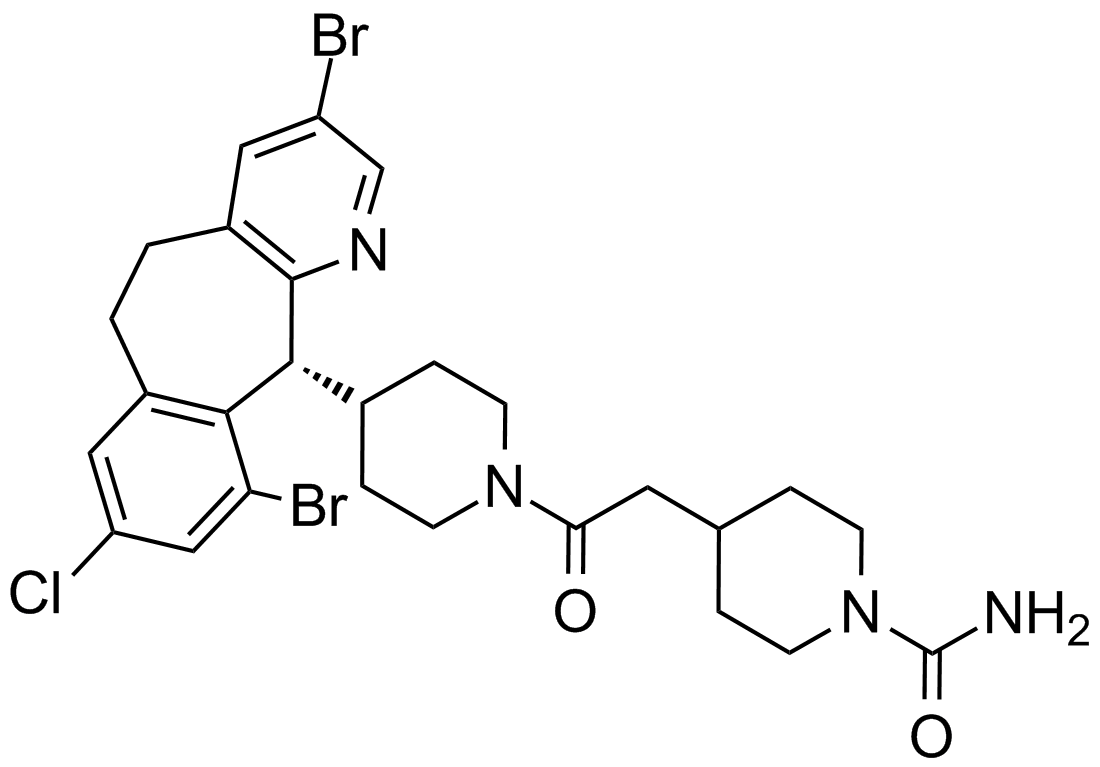 A4379 LonafarnibTarget: FPTaseSummary: Ftase inhibitor,potent and selective
A4379 LonafarnibTarget: FPTaseSummary: Ftase inhibitor,potent and selective -
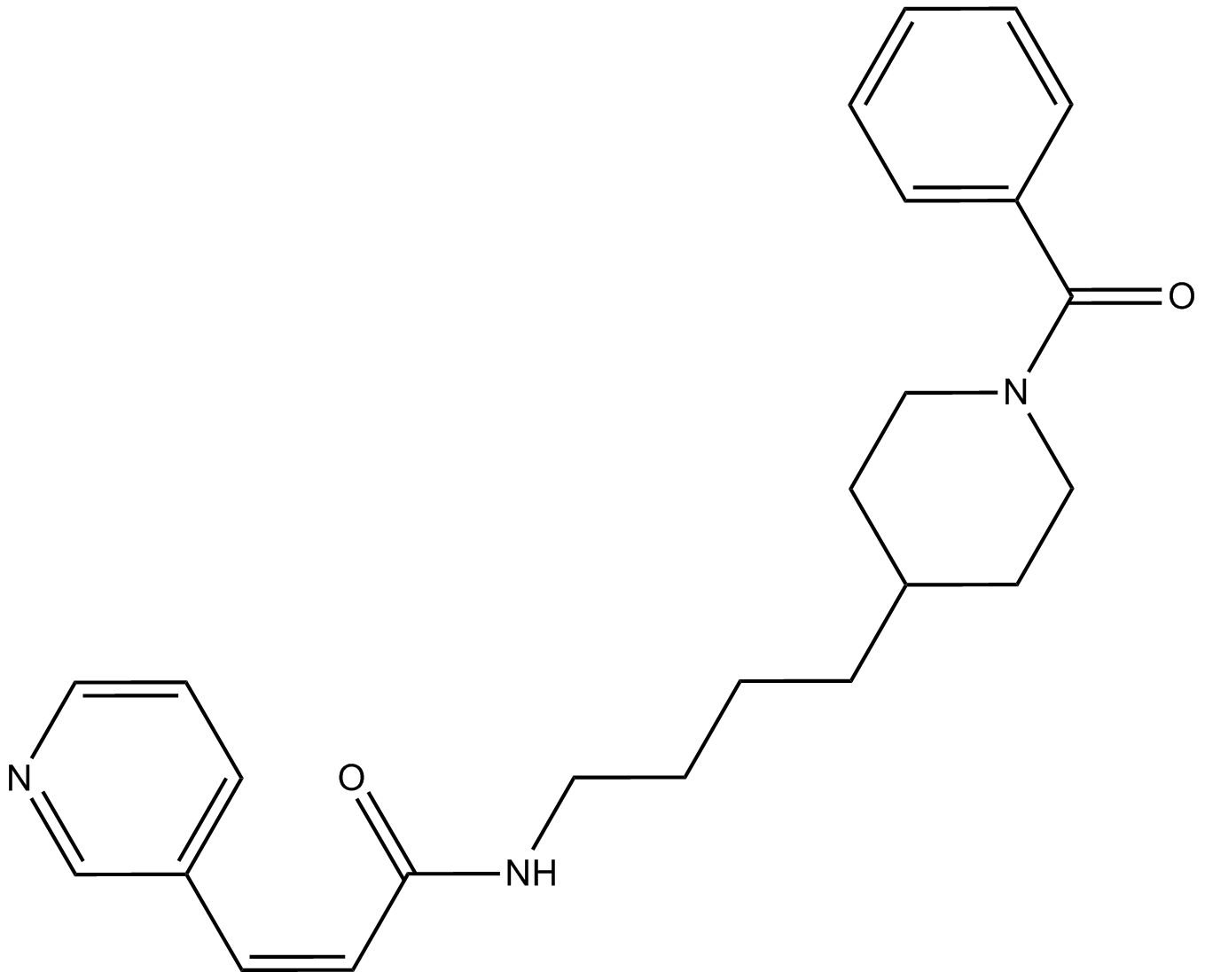 A4381 FK866 (APO866)1 CitationTarget: NamptSummary: NAMPT inhibitor, non-competitive, highly specific
A4381 FK866 (APO866)1 CitationTarget: NamptSummary: NAMPT inhibitor, non-competitive, highly specific -
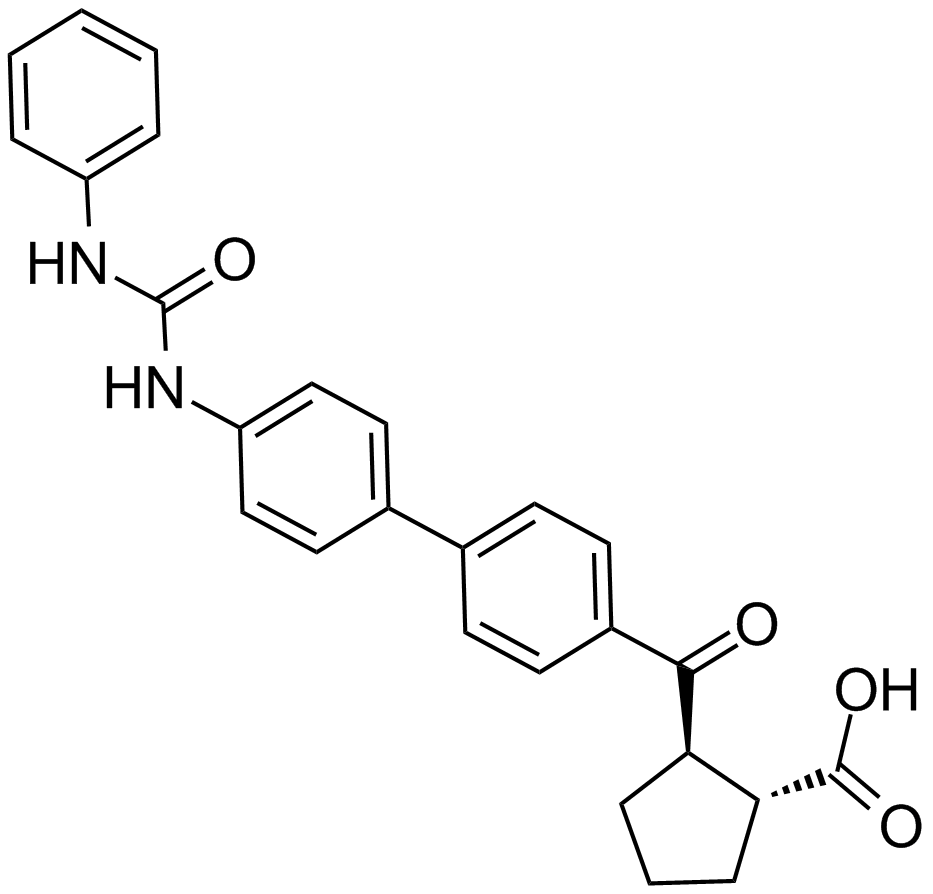 A4382 A922500Target: DGATSummary: DGAT-1 inhibitor
A4382 A922500Target: DGATSummary: DGAT-1 inhibitor -
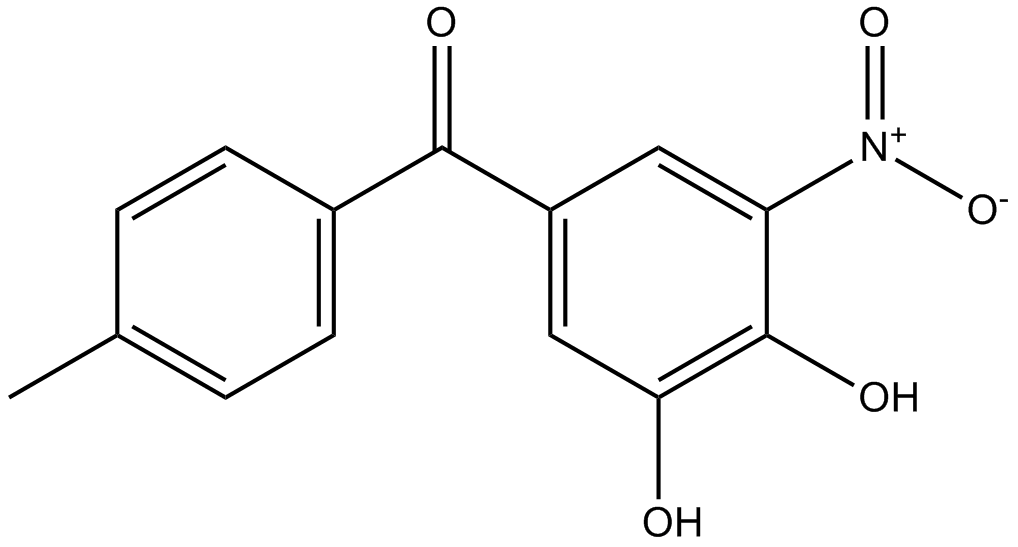 A4383 TolcaponeTarget: Catechol O-Methyltransferase (COMT)Summary: COMT inhibitor
A4383 TolcaponeTarget: Catechol O-Methyltransferase (COMT)Summary: COMT inhibitor

